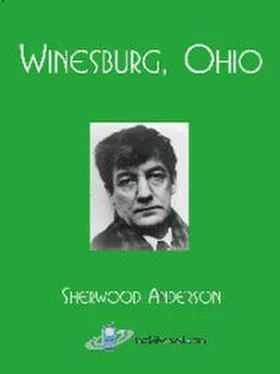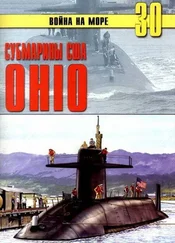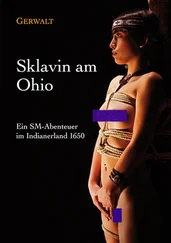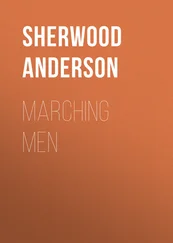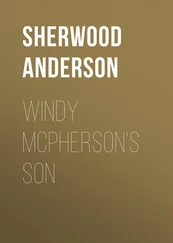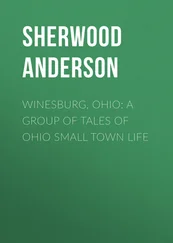Sherwood Anderson - Winesburg, Ohio
Здесь есть возможность читать онлайн «Sherwood Anderson - Winesburg, Ohio» весь текст электронной книги совершенно бесплатно (целиком полную версию без сокращений). В некоторых случаях можно слушать аудио, скачать через торрент в формате fb2 и присутствует краткое содержание. Жанр: Старинная литература, на английском языке. Описание произведения, (предисловие) а так же отзывы посетителей доступны на портале библиотеки ЛибКат.
- Название:Winesburg, Ohio
- Автор:
- Жанр:
- Год:неизвестен
- ISBN:нет данных
- Рейтинг книги:3 / 5. Голосов: 1
-
Избранное:Добавить в избранное
- Отзывы:
-
Ваша оценка:
- 60
- 1
- 2
- 3
- 4
- 5
Winesburg, Ohio: краткое содержание, описание и аннотация
Предлагаем к чтению аннотацию, описание, краткое содержание или предисловие (зависит от того, что написал сам автор книги «Winesburg, Ohio»). Если вы не нашли необходимую информацию о книге — напишите в комментариях, мы постараемся отыскать её.
Winesburg, Ohio — читать онлайн бесплатно полную книгу (весь текст) целиком
Ниже представлен текст книги, разбитый по страницам. Система сохранения места последней прочитанной страницы, позволяет с удобством читать онлайн бесплатно книгу «Winesburg, Ohio», без необходимости каждый раз заново искать на чём Вы остановились. Поставьте закладку, и сможете в любой момент перейти на страницу, на которой закончили чтение.
Интервал:
Закладка:
They began to walk along a narrow brick sidewalk between the cracks of which tall weeds grew. Some of the bricks were missing and the sidewalk was rough and irregular. He took hold of her hand that was also rough and thought it delightfully small. "I can't go far," she said and her voice was quiet, unperturbed.
They crossed a bridge that ran over a tiny stream and passed another vacant lot in which corn grew. The street ended. In the path at the side of the road they were compelled to walk one behind the other. Will Overton's berry field lay beside the road and there was a pile of boards. "Will is going to build a shed to store berry crates here," said George and they sat down upon the boards.
* * *
When George Willard got back into Main Street it was past ten o'clock and had begun to rain. Three times he walked up and down the length of Main Street. Sylvester West's Drug Store was still open and he went in and bought a cigar. When Shorty Crandall the clerk came out at the door with him he was pleased. For five minutes the two stood in the shelter of the store awning and talked. George Willard felt satisfied. He had wanted more than anything else to talk to some man. Around a corner toward the New Willard House he went whistling softly.
On the sidewalk at the side of Winney's Dry Goods Store where there was a high board fence covered with circus pictures, he stopped whistling and stood perfectly still in the darkness, attentive, listening as though for a voice calling his name. Then again he laughed nervously. "She hasn't got anything on me. Nobody knows," he muttered doggedly and went on his way.
Godliness
A Tale in Four Parts
There were always three or four old people sitting on the front porch of the house or puttering about the garden of the Bentley farm. Three of the old people were women and sisters to Jesse. They were a colorless, soft voiced lot. Then there was a silent old man with thin white hair who was Jesse's uncle.
The farmhouse was built of wood, a board outer-covering over a framework of logs. It was in reality not one house but a cluster of houses joined together in a rather haphazard manner. Inside, the place was full of surprises. One went up steps from the living room into the dining room and there were always steps to be ascended or descended in passing from one room to another. At meal times the place was like a beehive. At one moment all was quiet, then doors began to open, feet clattered on stairs, a murmur of soft voices arose and people appeared from a dozen obscure corners.
Besides the old people, already mentioned, many others lived in the Bentley house. There were four hired men, a woman named Aunt Callie Beebe, who was in charge of the housekeeping, a dull-witted girl named Eliza Stoughton, who made beds and helped with the milking, a boy who worked in the stables, and Jesse Bentley himself, the owner and overlord of it all.
By the time the American Civil War had been over for twenty years, that part of Northern Ohio where the Bentley farms lay had begun to emerge from pioneer life. Jesse then owned machinery for harvesting grain. He had built modern barns and most of his land was drained with carefully laid the drain, but in order to understand the man we will have to go back to an earlier day.
The Bentley family had been in Northern Ohio for several generations before Jesse's time. They came from New York State and took up land when the country was new and land could be had at a low price. For a long time they, in common with all the other Middle Western people, were very poor. The land they had settled upon was heavily wooded and covered with fallen logs and underbrush. After the long hard labor of clearing these away and cutting the timber, there were still the stumps to be reckoned with. Plows run through the fields caught on hidden roots, stones lay all about, on the low places water gathered, and the young corn turned yellow, sickened and died.
When Jesse Bentley's father and brothers had come into their ownership of the place, much of the harder part of the work of clearing had been done, but they clung to old traditions and worked like driven animals. They lived as practically all of the farming people of the time lived. In the spring and through most of the winter the highways leading into the town of Winesburg were a sea of mud. The four young men of the family worked hard all day in the fields, they ate heavily of coarse, greasy food, and at night slept like tired beasts on beds of straw. Into their lives came little that was not coarse and brutal and outwardly they were themselves coarse and brutal. On Saturday afternoons they hitched a team of horses to a three-seated wagon and went off to town. In town they stood about the stoves in the stores talking to other farmers or to the store keepers. They were dressed in overalls and in the winter wore heavy coats that were flecked with mud. Their hands as they stretched them out to the heat of the stoves were cracked and red. It was difficult for them to talk and so they for the most part kept silent. When they had bought meat, flour, sugar, and salt, they went into one of the Winesburg saloons and drank beer. Under the influence of drink the naturally strong lusts of their natures, kept suppressed by the heroic labor of breaking up new ground, were released. A kind of crude and animal-like p—tic fervor took possession of them. On the road home they stood up on the wagon seats and shouted at the stars. Sometimes they fought long and bitterly and at other times they broke forth into songs. Once Enoch Bentley, the older one of the boys, struck his father, old Tom Bentley, with the butt of a teamster's whip, and the old man seemed likely to die. For days Enoch lay hid in the straw in the loft of the stable ready to flee if the result of his momentary passion turned out to be murder. He was kept alive with food brought by his mother, who also kept him informed of the injured man's condition. When all turned out well he emerged from his hiding place and went back to the work of clearing land as though nothing had happened.
* * *
The Civil War brought a sharp turn to the fortunes of the Bentleys and was responsible for the rise of the youngest son, Jesse. Enoch, Edward, Harry, and Will Bentley all enlisted and before the long war ended they were all killed. For a time after they went away to the South, old Tom tried to run the place, but he was not successful. When the last of the four had been killed he sent word to Jesse that he would have to come home.
Then the mother, who had not been well for a year, died suddenly, and the father became altogether discouraged. He talked of selling the farm and moving into town. All day he went about shaking his head and muttering. The work in the fields was neglected and weeds grew high in the corn. Old Tim hired men but he did not use them intelligently. When they had gone away to the fields in the morning he wandered into the woods and sat down on a log. Sometimes he forgot to come home at night and one of the daughters had to go in search of him.
When Jesse Bentley came home to the farm and began to take charge of things he was a slight, sensitive-looking man of twenty-two. At eighteen he had left home to go to school to become a scholar and eventually to become a minister of the Presbyterian Church. All through his boyhood he had been what in our country was called an "odd sheep" and had not got on with his brothers. Of all the family only his mother had understood him and she was now dead. When he came home to take charge of the farm, that had at that time grown to more than six hundred acres, everyone on the farms about and in the nearby town of Winesburg smiled at the idea of his trying to handle the work that had been done by his four strong brothers.
There was indeed good cause to smile. By the standards of his day Jesse did not look like a man at all. He was small and very slender and womanish of body and, true to the traditions of young ministers, wore a long black coat and a narrow black string tie. The neighbors were amused when they saw him, after the years away, and they were even more amused when they saw the woman he had married in the city.
Читать дальшеИнтервал:
Закладка:
Похожие книги на «Winesburg, Ohio»
Представляем Вашему вниманию похожие книги на «Winesburg, Ohio» списком для выбора. Мы отобрали схожую по названию и смыслу литературу в надежде предоставить читателям больше вариантов отыскать новые, интересные, ещё непрочитанные произведения.
Обсуждение, отзывы о книге «Winesburg, Ohio» и просто собственные мнения читателей. Оставьте ваши комментарии, напишите, что Вы думаете о произведении, его смысле или главных героях. Укажите что конкретно понравилось, а что нет, и почему Вы так считаете.
